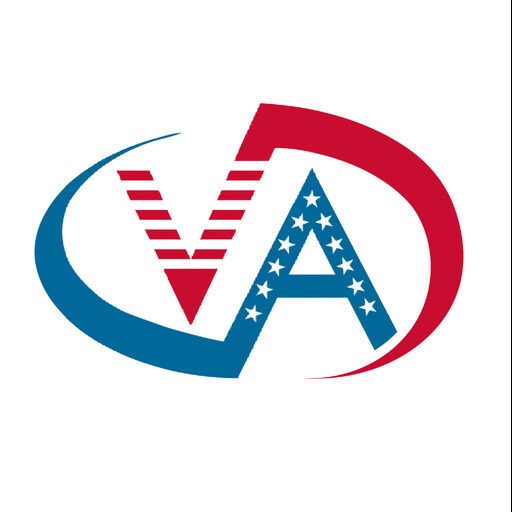
Avoid VA Loan Scams: A Practical Guide for Veterans & Families
VA loans are valuable, but scammers target them with aggressive pitches, fake “skip a payment” claims, and junk-fee refinances that drain equity. Learn the common red flags, how legitimate lenders actually operate, and the exact steps to verify, compare, and report—before you sign anything or share sensitive information.
Quick Facts
- Unsolicited contact is risky: Hang up on surprise “special VA” offers. Call your servicer using the number on your statement, never a number from a pitch.
- Ultra-low teaser rates hide costs: Look past the rate to total fees, points, and prepayment penalties that can erase claimed savings.
- Real help is never prepaid: Mortgage assistance or “paperwork help” cannot charge upfront fees for relief or applications—period.
Mini FAQ
Are unsolicited “VA refinance” calls ever legitimate?
Legitimate servicers contact customers, but cold calls touting “exclusive VA programs” and pressuring immediate action are classic red flags. End the call, then dial your servicer using your statement to confirm whether any offer actually exists and what it requires.
Can a refinance let me “skip payments” without cost?
No. You never skip a payment; amounts due are typically added to the balance, extending payoff and increasing interest paid. A real analysis compares monthly savings to total costs, not marketing phrases that ignore compounding and closing charges.
Do ultra-low advertised rates mean the cheapest loan?
Not necessarily. A rock-bottom rate may require heavy discount points, big lender fees, or variable terms that adjust higher. Always compare the full Loan Estimate, including APR and cash-to-close, across several lenders before deciding.
- Unsolicited “VA deals” are red flags; call your servicer directly to verify claims.
- Compare identical Loan Estimates; the APR and cash-to-close reveal real costs.
- Never pay upfront fees for mortgage relief, applications, or paperwork assistance.
- Refinance only for clear benefit, not repeated “churn” that erodes your equity.
- Use official government resources to verify professionals and report misconduct.
- Trust your instincts; pressure tactics and blank documents signal predatory intent.
What VA loan scams should you watch for right now?
Watch for unsolicited pitches, pressure, and “too good to be true” claims. Scammers spoof government logos, invent urgent deadlines, and promise skipped payments or special status to rush you into bad terms. The FTC details common mortgage-relief and refinance schemes and how they manipulate urgency and fees (FTC mortgage-relief scams; VA home loans overview).
- Unsolicited offers: Cold calls, texts, or mailers that pressure you to “act today” often mask junk fees or adjustable terms that shift risk to you later. Real lenders can explain timelines without fear tactics or aggressive scripts.
- Fake authority: Scammers misuse VA seals or claim to be “from the VA.” The VA does not cold-call to sell refinances. Any pitch that relies on a government logo rather than transparent pricing deserves immediate skepticism.
- Skip-payment bait: “No payment for two months” means those payments move into your new balance, increasing interest over time. Marketing that denies this math aims to win signatures, not protect borrowers.
- Pause and verify. End unsolicited contact politely. Call your servicer using your statement’s number to ask whether any offer exists and whether your account is eligible for a change.
- Gather facts. If interested, request a written quote and a formal Loan Estimate. Without standardized disclosures, comparisons are impossible and risk rises sharply.
- Refuse urgency tactics. Real offers survive a day of due diligence. If a caller insists on instant decisions, treat it as a red flag and step away.
Scams thrive on speed and secrecy. Your best defense is independent verification and standardized, written disclosures—not verbal promises or glossy mailers.
How do predatory “churn” refinances quietly drain equity?
Repeated refinances stack closing costs and extend payoff. Predatory lenders recycle borrowers through frequent refis that add fees to the balance, eroding equity even when the rate looks lower. The CFPB explains how to evaluate true costs versus headline rates (CFPB Loan Estimate guide).
- Cost folding: Points and fees added to your principal reduce equity immediately and increase lifetime interest. The monthly payment may fall slightly while total loan cost rises.
- Reset clocks: Resetting to a new 30-year term after each refinance restarts amortization, keeping you in interest-heavy years longer and postponing principal reduction that builds net worth.
- Benefit illusions: Marketing focuses on the new payment, not the break-even horizon. Without a time-to-recoup calculation, “savings” can be purely cosmetic and short-lived.
- Compute break-even. Divide total costs by monthly savings to find months to recoup. If you plan to move sooner, refinancing likely destroys value.
- Compare APRs. APR reflects rate and fees together. A lower APR at the same term generally indicates a more economical loan structure than a lower rate with heavy points.
- Demand purpose. Refinance only for a clear goal: sustainable payment relief, faster payoff, or risk reduction—never simply because “rates dipped.”
Equity builds slowly and can vanish quickly. A disciplined, math-first approach keeps your benefit intact and your payoff on track (CFPB guide).
How can you verify a lender or representative is legitimate?
Use official government resources, not pitch materials. Confirm you’re dealing with a reputable lender and accredited helpers before sharing documents. HUD provides a nationwide counselor finder, and VA maintains authoritative program pages you can rely on (HUD counselor finder; VA home loans overview).
- Independent contact: Never call numbers on mailers. Use official websites or your mortgage statement to locate valid phone numbers and email channels for lenders and servicers.
- Written disclosures: Legitimate lenders provide standardized Loan Estimates, servicing information, and closing disclosures. Refusal or delay is an immediate reason to walk.
- Reputation cues: Reputable institutions explain risks plainly, welcome comparisons, and encourage you to consult counselors or your financial advisor before proceeding.
- Find a counselor. Contact a HUD-approved housing counselor for unbiased help reviewing quotes and disclosures.
- Confirm program details. Read official VA pages to understand benefits and limitations so marketers can’t misstate rules to pressure you.
- Retain copies. Save emails, estimates, and rate-lock confirmations to document all terms and timelines as you compare offers.
Verification is simple when you control the channel and insist on standardized, government-backed forms—not sales scripts or screenshots.
What documents and math expose bait rates and junk fees fast?
Side-by-side Loan Estimates reveal the real winner. Comparing identical loan terms across at least three lenders surfaces padded points, add-on fees, and prepayment penalties that don’t show up in ads (CFPB: request & review Loan Estimates).
- Apples-to-apples terms: Fix the same loan amount, term, rate-lock length, and points for every quote. Changing any variable hides true pricing differences behind shifting assumptions.
- APR and cash-to-close: APR incorporates rate and fees; cash-to-close reflects what you’ll actually bring or finance. Evaluate both together to avoid “low rate, high fee” traps.
- Zero-cost myths: “No-cost” loans usually shift fees into the rate. That can be smart or expensive depending on how long you’ll keep the mortgage—run the numbers.
- Collect three estimates. Request same-day Loan Estimates using identical parameters to minimize market movement noise.
- Highlight variances. Compare lender fees, points, credits, and third-party costs line by line. Outliers require clear explanations, not hand-waving.
- Decide by horizon. If you’ll move soon, prioritize lower cash-to-close; for long holds, lower APR often wins—even with modest upfront costs.
Standardized disclosures dismantle marketing spin. Once terms are identical, the most economical offer becomes obvious (CFPB comparison steps).
How should you handle unsolicited offers and payment change requests?
Disconnect, then use trusted channels you control. Threats, countdowns, or demands to wire “new payment instructions” are hallmark scams. The FTC’s guidance on phone and imposter scams emphasizes hanging up and initiating contact yourself (FTC phone-scam guidance).
- Never wire on demand: Servicers don’t switch payment routes by text or unknown email. Payment changes arrive in official mail and your secure account—not via surprise messages.
- Kill the urgency: Scammers push instant action to bypass your reviews. A legitimate servicer can repeat details and send documents without pressuring you.
- Protect PII: Never share SSN, bank, or card numbers with cold callers. If they already “know everything,” that’s not proof of legitimacy—it’s a script.
- End the call. Use your statement’s number to reach your servicer and confirm whether any change or offer is real.
- Secure accounts. Change passwords, enable two-factor authentication, and monitor statements if you clicked links or shared information under pressure.
- Save evidence. Keep emails, caller IDs, and voicemails. Detailed records help investigators link related cases across states.
Controlling the communication path turns most “urgent” problems into non-events—because real servicers meet you on trusted, verifiable channels (FTC phone-scam tips).
When and how should you report a suspected VA loan scam?
Report immediately to build a paper trail and stop repeat harm. File with the FTC, the CFPB for mortgage complaints, and the VA Office of Inspector General; alert your state attorney general and servicer, too (FTC ReportFraud; CFPB complaint; VA OIG Hotline).
- Why speed matters: Fast reporting helps agencies spot patterns across victims and scripts. Investigators triage the most actionable cases first, so early details improve outcomes.
- What to include: Dates, amounts, company names, phone numbers, links, documents, and how contact began. Exact phrasing from callers is useful for matching fraud typologies.
- Parallel alerts: Notify your bank to block transfers or replace cards. If identity data was exposed, consider credit freezes with all three credit bureaus.
- Submit complaints. File with the FTC, CFPB, and VA OIG. Share the same timeline and documents so investigators can reconcile reports efficiently.
- Contact your servicer. Explain what happened and ask for account monitoring notes. Confirm any real assistance options on your existing loan.
- Preserve evidence. Save originals and screenshots. Keep a log of follow-ups with dates, names, and reference numbers for future correspondence.
Reporting protects you and your community. A clear, documented trail increases the odds of action and helps agencies warn other Veterans promptly (FTC portal; CFPB complaint; VA OIG).
The Bottom Line
Keep scammers out by controlling the channel and forcing transparency. Hang up on unsolicited pitches, then call your servicer using known contact details.
Demand standardized, same-day Loan Estimates from multiple lenders and compare APR and cash-to-close, not teaser rates. Refuse urgency, upfront fees, blank documents, and surprise payment instructions. Refinance only for a clear, measurable benefit with a realistic break-even timeline. Save every email, mailer, and disclosure, and schedule repairs or appraisals on your terms.
If someone crosses a line, report the incident and alert your bank. Trust your instincts: when offers withstand scrutiny, they earn your business—when they don’t, you walk.
Frequently Asked Questions
What are the biggest red flags in VA loan pitches?
Unsolicited contact, pressure to act immediately, promises of skipped payments, and refusal to provide standardized Loan Estimates are primary red flags. Scammers rely on urgency and secrecy; legitimate lenders welcome questions and written comparisons.
Can the VA call me with an “exclusive refinance offer”?
No. The Department of Veterans Affairs doesn’t cold-call to sell refinances or special deals. If you get a call claiming to be the VA, hang up and contact your servicer using the number on your mortgage statement.
How do I compare refinance offers safely?
Request same-day Loan Estimates using identical terms for amount, points, and lock length. Compare APR, cash-to-close, and lender credits line by line to identify genuine savings versus rate-only marketing.
What is refinance “churning,” and why is it harmful?
Churning means repeated refinances that add fees to your balance and reset your payoff clock. It may lower the payment briefly while increasing total interest and reducing your home equity over time.
Are upfront fees for mortgage help ever legal?
No. Companies can’t charge upfront fees for mortgage assistance or paperwork help. If someone demands payment before service, it’s a major warning sign. Seek free guidance from approved counselors instead.
How can I check if advice is unbiased?
Use a HUD-approved housing counselor for independent guidance, and verify information on official government sites. Unbiased advisors help you evaluate disclosures, costs, and break-even math without sales pressure.
What if a caller says I can wire my mortgage to a new account?
Assume fraud. Servicers do not change payment instructions by text or random emails. Call your servicer at the number on your statement to confirm any change before sending funds.
Does a lower rate always mean a better deal?
Not necessarily. A lower rate can hide high points or fees. The APR and cash-to-close reveal true costs. Decide based on break-even months and how long you’ll keep the loan.
How soon should I report a suspected scam?
Immediately. File with the FTC and the CFPB, notify your servicer, and consider contacting the VA OIG. Quick reporting improves outcomes, blocks transfers, and helps protect other Veterans from similar schemes.
What documents should I save if targeted?
Keep mailers, emails, caller IDs, voicemails, texts, screenshots, and any estimates or disclosures. A complete record helps investigators connect related cases and strengthens disputes or recovery efforts later.

The VA Loan Network Editorial Team is comprised of dedicated mortgage specialists and financial writers committed to providing veterans and service members with accurate, up-to-date information on VA loan benefits, eligibility, and the home-buying process.








